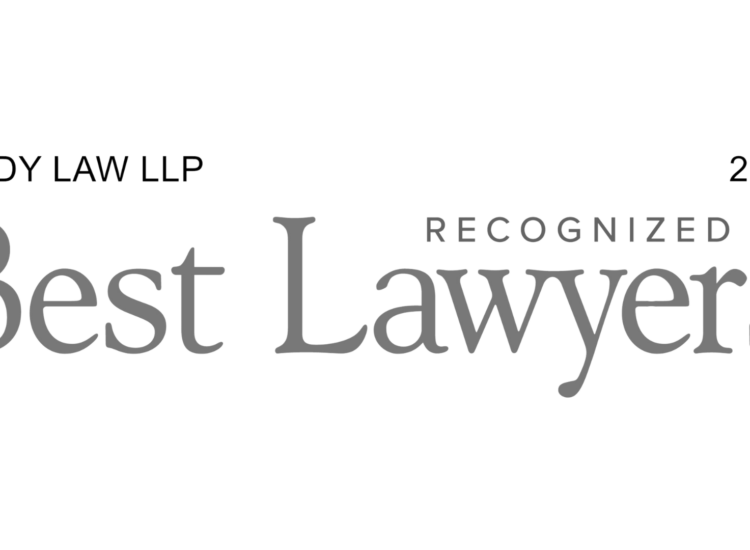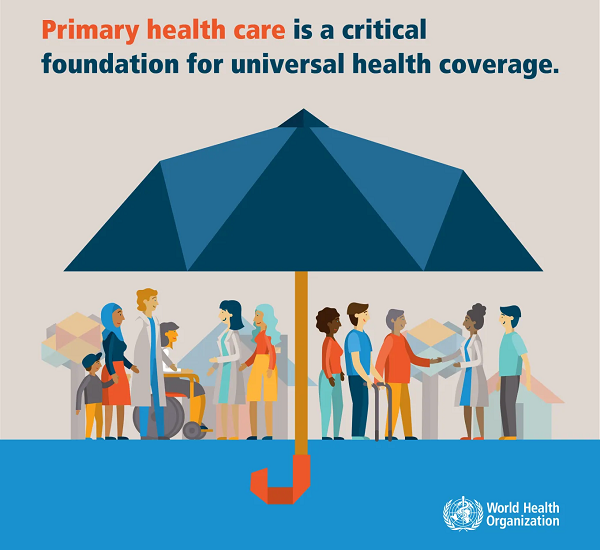Securing adequate life insurance after 50 can be a complex and challenging task. Many seniors face a unique set of financial circumstances, including reduced income as they approach retirement, existing debts, and the desire to leave a financial legacy for their loved ones. Finding the best term life insurance for over 50 requires careful consideration of coverage needs, affordability, and the various types of policies available. This guide aims to clarify the options and provide insights to help navigate this important decision.
Toc
- 1. Understanding Term Life Insurance Over 50
- 2. Whole Life Insurance Over 50: A Closer Look
- 3. No-Medical Exam Life Insurance: Convenience and Affordability
- 4. Related articles 01:
- 5. Universal Life Insurance: Flexibility for Changing Needs
- 6. Comparing Life Insurance Options: Term vs. Whole vs. Universal
- 7. Choosing the Right Policy: Factors to Consider
- 8. Managing Life Insurance Costs and Tax Implications
- 9. Related articles 02:
- 10. Real-Life Scenarios: Case Studies of Seniors and Insurance Choices
- 11. Essential Steps for Seniors Seeking Life Insurance
- 12. Conclusion
Understanding Term Life Insurance Over 50

Term life insurance is a straightforward and budget-friendly option tailored for those over 50. It provides coverage for a specified period typically ranging from 10 to 30 years making it an appealing choice for seniors seeking to protect their loved ones without incurring excessive costs.
Benefits of Term Life Insurance for Seniors
One of the most significant advantages of term life insurance is its affordability. For many seniors, lower premiums mean more financial flexibility. It’s an effective way to cover immediate financial needs, such as paying off a mortgage or covering final expenses, without the high costs associated with whole life policies.
Moreover, statistics indicate that the average cost of term life insurance for seniors varies based on several factors, including age, health status, smoking habits, and the length of the policy. For example, a 60-year-old male may pay approximately $214 monthly for a $1,000,000 policy, while a 70-year-old might face premiums around $610 for the same coverage. These figures illustrate how premiums can escalate with age, emphasizing the importance of securing coverage sooner rather than later.
However, it’s essential to recognize the limitations of term life insurance. The policy expires at the end of the term, and if you outlive it, there’s no payout. Therefore, seniors should carefully consider their long-term needs when selecting a policy. Some may find the limited coverage period insufficient for their estate planning goals, especially if they have substantial financial obligations or dependents.
Term Life Insurance Rates by Age Chart
To further illustrate how age impacts premiums, a term life insurance rates by age chart can be beneficial. Here are some hypothetical examples:
| Age | Monthly Premium for $1,000,000 Coverage |
|---|---|
| 60 | $214 |
| 65 | $360 |
| 70 | $610 |
This chart serves as a helpful reference for seniors to gauge potential costs associated with term life insurance as they age.
Key Points
- Definition: Temporary coverage for a set term (10-30 years).
- Advantages: Affordability, simplicity, and ease of understanding.
- Disadvantages: Limited coverage duration, with no payout if the term is outlived.
- Sample Premium Costs: Varies by age, e.g., $214/month for a 60-year-old.
Whole Life Insurance Over 50: A Closer Look
Whole life insurance offers a different approach. Unlike term life, this policy provides lifelong coverage and includes a cash value component that grows over time. This means beneficiaries are guaranteed a payout upon the policyholder’s death, regardless of when it occurs, as long as premiums are paid.
Advantages of Whole Life Insurance
For seniors aiming for long-term financial stability, whole life insurance can be a powerful tool. It not only ensures a death benefit but also allows policyholders to accumulate cash value that can be borrowed against or used as a supplement during retirement.
Furthermore, the cash value growth in whole life insurance comes with potential tax advantages. Generally, the death benefit paid to beneficiaries is tax-free. However, withdrawals or loans taken against the cash value may incur tax implications, especially if the policy is surrendered. Therefore, understanding these factors is crucial for making informed decisions.
Despite these benefits, it’s important to note that whole life insurance typically comes with higher premiums than term life policies. Seniors searching for the cheapest whole life insurance for over 50 should consider various factors, including age, health status, and the insurance company’s underwriting practices.
Key Points
- Definition: Lifelong coverage with a cash value component.
- Advantages: Guaranteed payout, cash value accumulation, and potential tax benefits.
- Disadvantages: Higher premiums and complexity in understanding cash value mechanics.
- Factors Influencing Cost: Age, health status, and insurer underwriting practices.
No-Medical Exam Life Insurance: Convenience and Affordability

Many seniors express concerns about the medical exams often required when applying for life insurance. Fortunately, options like life insurance over 50 no medical exam are becoming increasingly popular. These policies provide a hassle-free way for seniors, particularly those with health issues, to secure coverage.
1. https://splendavietnam.com/mmoga-finding-the-best-insurance-agency-in-kansas-for-new-drivers/
3. https://splendavietnam.com/mmoga-finding-the-best-car-insurance-oregon-a-comprehensive-guide/
4. https://splendavietnam.com/mmoga-best-car-insurance-in-ky-a-seniors-guide-to-affordable-coverage/
Pros and Cons of No-Medical Exam Policies
Pros:
- Accessibility: Easier for seniors with pre-existing health conditions to obtain coverage.
- Convenience: Simplified application process without the need for medical evaluations.
Cons:
- Higher Premiums: Generally more expensive than traditional policies due to increased risk for insurers.
- Limited Coverage: Coverage amounts may be lower than standard policies.
Recent advancements in telehealth and digital applications are transforming the no-medical exam market. Many insurance companies now employ AI-powered risk assessment tools to evaluate applicants’ health profiles more accurately and efficiently. This trend not only streamlines the application process but also enhances accessibility for seniors seeking coverage.
For those looking for the cheapest life insurance over 50 no medical exam, it’s essential to compare options from various insurers to find the best rates available while considering the trade-offs.
Key Points
- Definition: Policies that do not require medical exams for approval.
- Advantages: Convenience and accessibility, especially for those with health concerns.
- Disadvantages: Typically higher premiums and potential limitations on coverage amounts.
Universal Life Insurance: Flexibility for Changing Needs
Universal life insurance is another option worth considering for seniors. This type of policy combines features of both term and whole life insurance, providing the flexibility to adjust premiums and death benefits based on changing financial situations.
Why Choose Universal Life Insurance?
Universal life insurance can be particularly appealing for seniors whose financial circumstances may vary over time. Whether needing to lower premiums or increase death benefits, this policy can adapt to evolving needs, offering a safety net while allowing for financial adjustments as required.
Key Points
- Definition: Flexible coverage that allows for adjustments to premiums and benefits.
- Advantages: Adaptability to changing financial situations and the potential for cash value accumulation.
- Disadvantages: Complexity and the possibility of higher premiums if not managed carefully.
Comparing Life Insurance Options: Term vs. Whole vs. Universal

Choosing the right life insurance policy can be daunting, especially with so many options available. Here’s a quick comparison table summarizing the key features, pros, and cons of term, whole, and universal life insurance policies.
This table can help seniors determine which type of policy aligns best with their financial goals and needs.
Current Trends: Rising Interest Rates and Their Impact on Life Insurance
As the economic landscape evolves, rising interest rates can significantly affect the cost of life insurance, particularly for whole life and universal life policies. Higher interest rates can lead to increased premiums, as insurance companies adjust their pricing models to account for potential market fluctuations. Seniors should be aware of this trend when considering their options.
Choosing the Right Policy: Factors to Consider
When selecting a life insurance policy, several key factors must be considered:
Assessing Your Age and Health
Understanding how your age impacts premiums and coverage options is crucial. Additionally, assess your health status and how it may affect eligibility and pricing. Seniors with pre-existing conditions may face higher premiums or limited coverage options.
Evaluating Your Financial Situation
Evaluate your current financial landscape, including debts and dependents. Understanding your financial obligations will help you determine how much coverage you need and what type of policy aligns with your financial goals.
Determining Your Coverage Needs
Consider how much coverage you require based on outstanding debts, dependents, and legacy goals. By taking the time to assess these factors, seniors can make informed decisions about which policy will best suit their needs.
Managing Life Insurance Costs and Tax Implications
Strategies for Cost Management

2. https://splendavietnam.com/mmoga-finding-the-best-car-insurance-oregon-a-comprehensive-guide/
3. https://splendavietnam.com/mmoga-best-car-insurance-in-ky-a-seniors-guide-to-affordable-coverage/
4. https://splendavietnam.com/mmoga-finding-the-best-insurance-agency-in-kansas-for-new-drivers/
For seniors on a fixed income, managing life insurance costs can be challenging. Here are some practical tips for finding affordable options:
- Opt for Shorter Terms: If the goal is to cover specific expenses, consider choosing a shorter-term policy, which can be less expensive than longer-term options.
- Adjust Death Benefits: Lowering the death benefit can help reduce premiums, making coverage more affordable.
- Compare Multiple Quotes: Shopping around and comparing quotes from different insurers is essential for finding the best rates.
Understanding Tax Implications
It’s also crucial for seniors to understand the tax implications of their life insurance policies. Generally, the death benefit paid to beneficiaries is tax-free, which can provide peace of mind. However, the cash value growth in whole life insurance is tax-deferred, meaning taxes are not due until funds are withdrawn. Understanding these aspects can help seniors make informed decisions about their insurance options.
Real-Life Scenarios: Case Studies of Seniors and Insurance Choices
Hypothetical Case Study: The Couple with a Mortgage
Consider a couple in their early 60s who still have a mortgage to pay off. They choose a 20-year term life insurance policy to ensure that, should one of them pass away, the surviving partner will have the means to pay off the mortgage without financial strain. This choice provides peace of mind and ensures their home remains secure.
Hypothetical Case Study: The Single Senior with Health Concerns
Next, imagine a single senior in their late 60s facing health challenges. This individual opts for a no-medical-exam life insurance policy. Although the premiums are higher, the convenience of securing coverage without a medical exam is invaluable, allowing them to leave behind funds for final expenses without the stress of potential health complications affecting their eligibility.
Hypothetical Case Study: The Grandparent Leaving a Legacy
Finally, consider a healthy grandparent in their mid-70s wishing to leave a financial gift for their grandchildren. They decide on a whole life insurance policy. This option not only provides lifelong coverage but also accumulates cash value that can be tapped into if needed. This strategy ensures they can contribute to their grandchildren’s education while leaving a lasting legacy.
Essential Steps for Seniors Seeking Life Insurance
Start Early and Compare

To secure the best term life insurance for over 50, seniors should begin the process early. This allows them to lock in lower premiums before health concerns arise. Comparing quotes from multiple insurers is crucial to finding the best deal that suits their needs.
Consider Health and Financial Situations
Understanding your health and financial status is vital when selecting a policy. Seniors should evaluate how much coverage they need based on existing debts and dependents, ensuring they select a policy that aligns with their financial goals.
Work with an Independent Insurance Agent
Consulting with an independent insurance agent can provide valuable guidance in navigating the complexities of life insurance. These professionals can help seniors identify suitable policies and negotiate better terms tailored to individual circumstances.
Regular Policy Review
Lastly, it’s important for seniors to review their life insurance policies regularly. Life changes, such as retirement, changes in income, or health status, may necessitate adjustments to coverage levels or policy types.
Conclusion
Navigating the world of life insurance in your 50s and beyond can feel overwhelming, but understanding the options available can simplify the process. Whether considering term life insurance, whole life insurance, or universal life insurance, it’s essential to evaluate personal needs, budget constraints, and long-term goals. By taking the time to compare policies, consult with experts, and stay informed about the options available, seniors can secure the best term life insurance for over 50, ensuring their loved ones are financially protected for years to come.
Securing the right life insurance policy provides peace of mind, knowing your loved ones will be financially protected in the future. Start your search for the best term life insurance for over 50 today!










